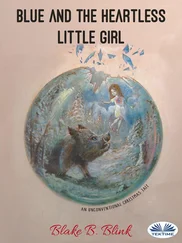Annie Randall White - The Blue and The Gray
Здесь есть возможность читать онлайн «Annie Randall White - The Blue and The Gray» — ознакомительный отрывок электронной книги совершенно бесплатно, а после прочтения отрывка купить полную версию. В некоторых случаях можно слушать аудио, скачать через торрент в формате fb2 и присутствует краткое содержание. Жанр: foreign_prose, История, foreign_edu, foreign_antique, на английском языке. Описание произведения, (предисловие) а так же отзывы посетителей доступны на портале библиотеки ЛибКат.
- Название:The Blue and The Gray
- Автор:
- Жанр:
- Год:неизвестен
- ISBN:нет данных
- Рейтинг книги:3 / 5. Голосов: 1
-
Избранное:Добавить в избранное
- Отзывы:
-
Ваша оценка:
- 60
- 1
- 2
- 3
- 4
- 5
The Blue and The Gray: краткое содержание, описание и аннотация
Предлагаем к чтению аннотацию, описание, краткое содержание или предисловие (зависит от того, что написал сам автор книги «The Blue and The Gray»). Если вы не нашли необходимую информацию о книге — напишите в комментариях, мы постараемся отыскать её.
The Blue and The Gray — читать онлайн ознакомительный отрывок
Ниже представлен текст книги, разбитый по страницам. Система сохранения места последней прочитанной страницы, позволяет с удобством читать онлайн бесплатно книгу «The Blue and The Gray», без необходимости каждый раз заново искать на чём Вы остановились. Поставьте закладку, и сможете в любой момент перейти на страницу, на которой закончили чтение.
Интервал:
Закладка:
"De oberseer was fighting de flames and he tole us to get all de buckets we could, and fotch de water from de well in dem, and he jumped on a hoss and galloped to de nearest plantation for help, and dey all turned out, white people and slabes, and brought water, and soon de fire wasn't red no mo', but de house—you can see de walls now ober dar, whar dey stand to 'min' me ebery day ob de dear massa and missie and de little lamb, Flossie—was no house any more, all de insides gone, and de black outside standing up in de summer air."
She paused to wipe away the hot tears that blinded her.
"What became of your master and his family?"
"Massa and missus were presarbed, but de little white blos-whose birfday had been so bright, dey didn't know whar to look for her, and her mudder was screeching 'My baby—my baby!' and going out o' one faint into anoder, and her pa trying to rush inter de smoking house and calling for his Flossie—oh, it was enuff to make de har turn gray!
"She muss hab been frightened so when de smoke got in her pretty blue eyes dat she didn't know how to fin' de way out, fer she was crouched down behind de front stairs, and dat's de spot whar Dick found her, wid her night-dress all on fire, but de light tole him whar to look.
"When he put de little precious chile in my-arms she put her baby fingers on my black face and she said, 'Judah, tell mamma—I am not hurt—but I caint see!' Honey, de nex' day she shut dem po' little eyes on dis world, and missie, whose heart broke den, followed her lamb to de hebenly pastures whar de good Lawd 'tends to all deir wants."
"What became of your master?"
"Massa Steve? He went ober de sea, and he died in anoder country. De plantation and all de slabes went to his brudder, who had de big house yo' sees ober dar on de road put up. No one eber goes near de old place, fer dey say its hanted."
"But the old home and Joe? You don't think he had anything to do with setting it on fire?"
"Massa, de good Book tells de po' creatures dat dey musn't form no 'pinion to hurt deir neighbors. It goes agin me to say dat he did, but yo' didn't know Joe, and I did."
"Did they suspect him?"
"I neber could look dem in de face to know, but Joe neber was seen after de house was burned, and dat's many years in de past."
Ralph drew a long breath, and bidding the old negress goodbye, he went back to camp with a sad heart. When he entered the camp he found the men gathered in knots, discussing the news they had just received of a coming engagement.
"What are we going out for?" asked a new man.
"So as to give the rebs a chance to lay us out, or be laid out themselves. What do you suppose we go to war for?"
Old Bill's gruff tones nettled the man.
"It don't hurt you to answer a civil question, does it?"
"Well, not exactly. You see General McCall has had an advance guard out reconnoitering, but he can't persuade the boys over on the Virginia side to show up on open ground. They say there's a big force of Confeds at Leesburg, five miles or so back from the river."
"This will be my first battle," the new recruit said, with a sigh, "but I don't expect it'll be my last."
"That's right—never say die. The man who is a little chicken-hearted at first, often turns out to be the most courageous soldier."
"I remember reading once," Ralph interposed, "that at some charge on a battery in one of the battles Napoleon fought when the odds were greatly against him, his attention was called by one of his officers to the cowardice of one poor fellow who was pressing on, up to the cannon's mouth. His knees were shaking, his eyes bulged out, and he gave every evidence of being terror-stricken. But his gaze was fixed on the coveted point, his teeth were set hard, and he kept resolutely on. 'That man is not a coward,' said the great general; 'he sees that his life is in danger, and still he does not shrink from his duty, but faces death like a man. He will be shot before he yields."
"But the soldier was not wounded. He lived to become an officer in the very regiment which one would have expected to see disgraced by his cowardice, and won great fame through his heroic bravery in after engagements."
"Boys," said Old Bill, who was always the spokesman for the party, "the 'Little Corporal'—that's Napoleon Bonaparte," he continued in an aside to the new man, who made a wry face at being singled out for an explanation—"was right. It's agin human nature not to feel a little shaky when you are going into your first battle. It's how you do your duty that settles your standing. If you attend to that no one can blame you for having a leetle private fear of your own."
CHAPTER VII. THE DISASTER AT BALL'S BLUFF
A HASTY breakfast, with a rigid inspection of their muskets, and a hurried packing of knapsacks, preceded the long role of the drum, the signal to be up and doing. The sight of a body of soldiers with their glittering arms and tasty uniforms is inspiriting, and dull and cold must be the bosom that does not leap quicker at the thought that he belongs to this grand whole. Ralph felt a thrill of exultation as he realized that he was a part and parcel of the men who were massed on the bank of the Potomac that bright October day. There were Ralph's regiment of Massachusetts men, the Forty-second New York, Seventy-first Pennsylvania and a Rhode Island battery, counting, in all, some 2,000 men, watching for a chance to cross at an island which lay there.
The day was beautiful—the sun poured down his warm beams, for in that region the winter is late. Many were the openly spoken murmurs of impatience, however, on the part of the men.
"We shall never get across till doomsday," Bill Elliott said to Ralph. "Look at our men, over 2,000 of them, and we've only got two or three old boats to carry us over. With all due respect to General McClellan, I think he's made a great big mistake, as General Stone will find to his cost before we're over. The Johnnies can see all we're doing and get all ready for us. Why, it'll be dead easy for them to receive us in fine shape."
"They are having hard work with that battery, getting it up the bluff. See how they slip at every step."
And as Ralph watched the battery being dragged up with prodigious exertion his heart felt heavy, and he, too, began to fear there was an oversight somewhere.
At the top of the bluff lay a broad field of about ten acres, hemmed in on all sides by thick woods, so dense that neither infantry nor artillery could penetrate them in line. Colonel Baker was given entire command of all the troops. Then began a desperate and gallant attempt, which the Confederates met, dashing out from the timber, and though the Federals fired round after round from their battery, it was a hopeless conflict, for the rebel sharpshooters picked off their gunners, one after another, and the pieces were left useless.
Still on the Union forces pressed, to be met by a heavy body of infantry, whose hot fire cut them down. For two hours they stood their ground gallantly, and returned the fire with spirit. Suddenly an officer riding a splendid horse, whose snowy sides were covered with foam, dashed out of the woods, and coming toward them, waving his sword over his head, he beckoned the Union forces forward.
Colonel Baker took new courage; he thought he recognized General Johnston in the horseman, and wildly cheering to his command to follow, he pressed forward, hoping at last he should meet the enemy in an open fight. But he was met by a fierce onset of the Confederates, who came on with tremendous force. Like a solid wall they met the Federals, and as part of the latter's columns charged, Colonel Baker received the whole contents of a revolver in the hands of one of the rebels, and fell dead.
His body was rescued through the bravery of Captain Beiral and his company, who fought their way back through the thickest of the opposing force, and with desperate courage rescued the body of their dead commander, and conveyed it to the island. At once the rout began, and the Union forces were driven back, down the steep clay bluffs, one hundred feet high, falling, jumping down, pushed by the Confederates, who followed at their heels, killing and taking prisoners.
Читать дальшеИнтервал:
Закладка:
Похожие книги на «The Blue and The Gray»
Представляем Вашему вниманию похожие книги на «The Blue and The Gray» списком для выбора. Мы отобрали схожую по названию и смыслу литературу в надежде предоставить читателям больше вариантов отыскать новые, интересные, ещё непрочитанные произведения.
Обсуждение, отзывы о книге «The Blue and The Gray» и просто собственные мнения читателей. Оставьте ваши комментарии, напишите, что Вы думаете о произведении, его смысле или главных героях. Укажите что конкретно понравилось, а что нет, и почему Вы так считаете.











